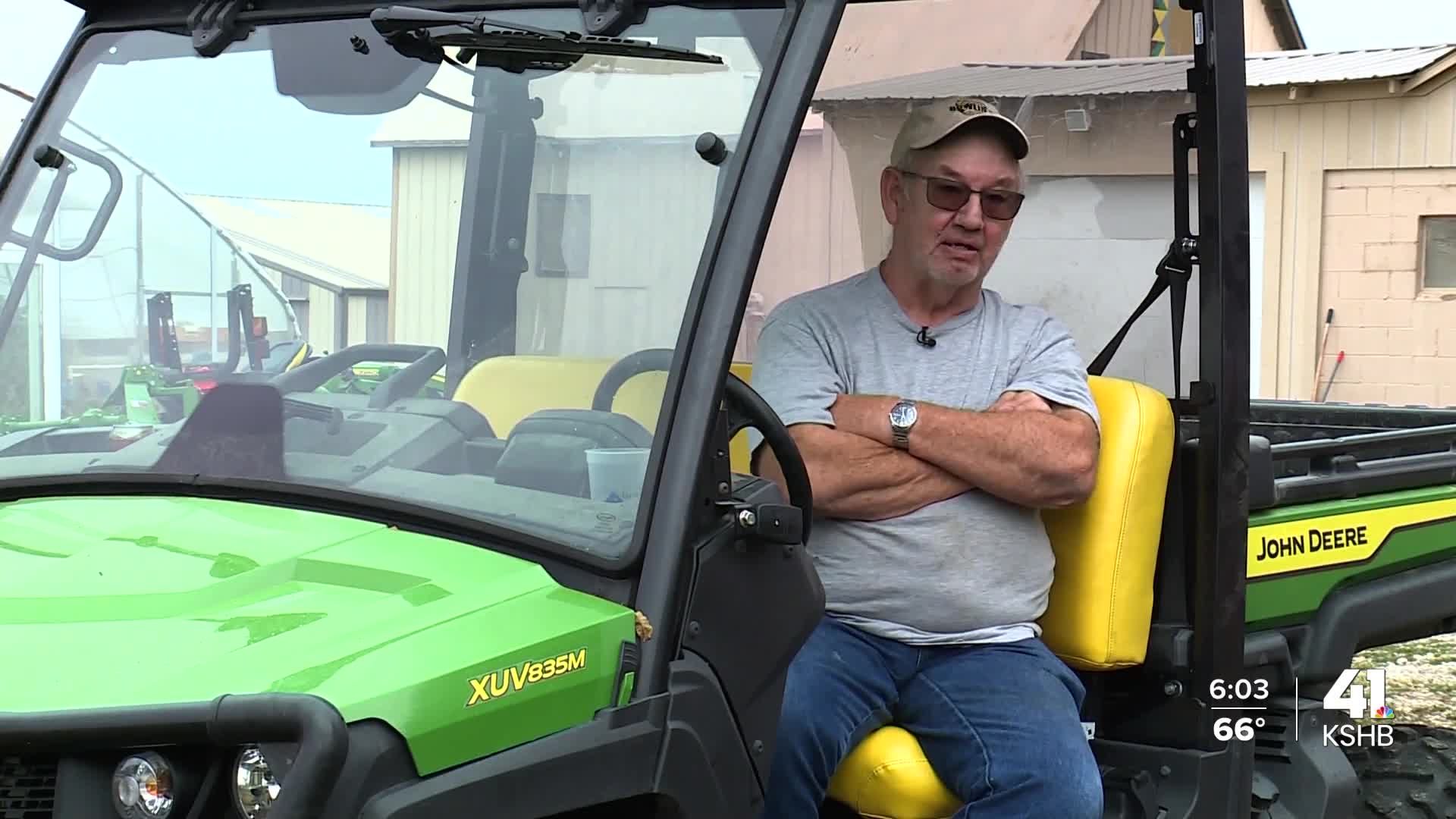KSHB 41 reporter Ryan Gamboa covers Miami County in Kansas and Cass County in Missouri. He also covers agricultural topics. Share your story idea with Ryan.
There's plenty of work to be done at Bowlin Farms in De Soto, Kansas — much of it can't be done without a little help.
"I'm 69 years old, I can't do as much as I used to," Steve Bowlin said.
The specialty crop operation runs two hot houses, growing vegetables and produce of all kinds.
KSHB 41 first visited the operation in late January.
"To try to produce the food we all eat is almost impossible without migrant workers," Bowlin told KSHB 41 earlier this year. "We use the H-2A program through the government to bring in visaed farm workers, because there is not enough workers in the United States to do what we do."

In January, Bowlin was only at the beginning of the growing season and his two workers, Ivan and Victor had not arrived yet. Bowlin expressed concerns at some of the promises made by the Trump Administration, including mass deportations.
Since Ivan and Victor's arrival, they've watched headlines highlight immigration enforcement across the country and Kansas City region.

"I see the news. Facebook or something, but now I worry for the Latinos. Latinos are scared now. Sometimes we're scared too," Ivan said. "We come just for work. But when we go to Walmart or something, we’re scared. I don’t know what would happen if we get stopped."
This summer, immigration enforcement has been prevalent in communities across the Kansas City metro.
"It's nerve-racking," Bowlin said.

Ivan and Victor, two farm laborers through the H-2A seasonal worker program, are rounding off their work year in the United States.
On Labor Day, they were trimming tomato vines.
"I like it, because I am helping my family in Mexico," Ivan told KSHB 41. "In Mexico, I don’t have work. It’s difficult, it’s a different economy."
Ivan and Victor are cousins — the two have worked across other farming operations in the Midwest and Great Plains regions, including on farms at home in Mexico.

"We work on a farm in Mexico, but not everything is the same," Ivan shared.
According to Bowlin, much of what needs to be done on the farm cannot be done without their help.
"They’re doing jobs that our American people will not do anymore," he said. "It's hard manual labor."
The jobs on the farm vary — picking and planting produce, to loading trucks bound for the KC Food Hub.

It isn't all work on the farm. Ivan and Victor live in a nearby apartment, play soccer on Sundays, and spend time with Steve's mom on the farm.
"Grandma likes to feed us," Ivan said with a smile.
In the United States, 19.2% of the workforce nationwide is made of foreign-born labor, according to the Bureau of Labor Statistics.
In agriculture, 55% of the labor is Hispanic or Mexican origin.

The 2019-2020 National Agricultural Workers Survey suggests 68% of farm labor in the United States were foreign-born and 44% were undocumented.
"I can't find kids that want to work anymore," Bowlin said. "I can say, 'How many watermelons do you need picked today?’ 900. 'Okay, I’ll see you tonight.' It makes you feel good when somebody comes to work with a smile on their face and they smile all day long."
Bowlin Farms faces uncertainty when it comes to its crop production yields this year. Mother nature threw the operation some curve balls.

Higher input costs, increasing wages, and changing policy around immigration could push him out of the program.
He's already feeling the pinch of not finding enough local labor, but fears continued immigration enforcement is only going to make it more difficult.
"We are trying to do it the right way," he explained. "That (enforcement) is actually doublly-damaging our economy, in my opinion. You’ve got workers that are good workers who aren’t going to work because they're afraid."

While Ivan and Victor are in the country legally, their families in Mexico continue to worry about their well-being.
"They worry. All day, my mom texts me, and asks me, 'How are you?' 'Is everything OK?' Sometimes my dad asks me, 'The police, everything OK? No one stops you or something?'" Ivan explained. "We come here for work. We make everything good."
Ivan and Victor continue to work, providing for their families who live in the Pacific state of Guerrero.

Bowlin says he intends to find a way to keep Ivan and Victor in the budget, because they've become more like family than employees.
"We have a new opportunity here versus Mexico," Ivan added. "We are good here now. It's friends, it's family."
—




